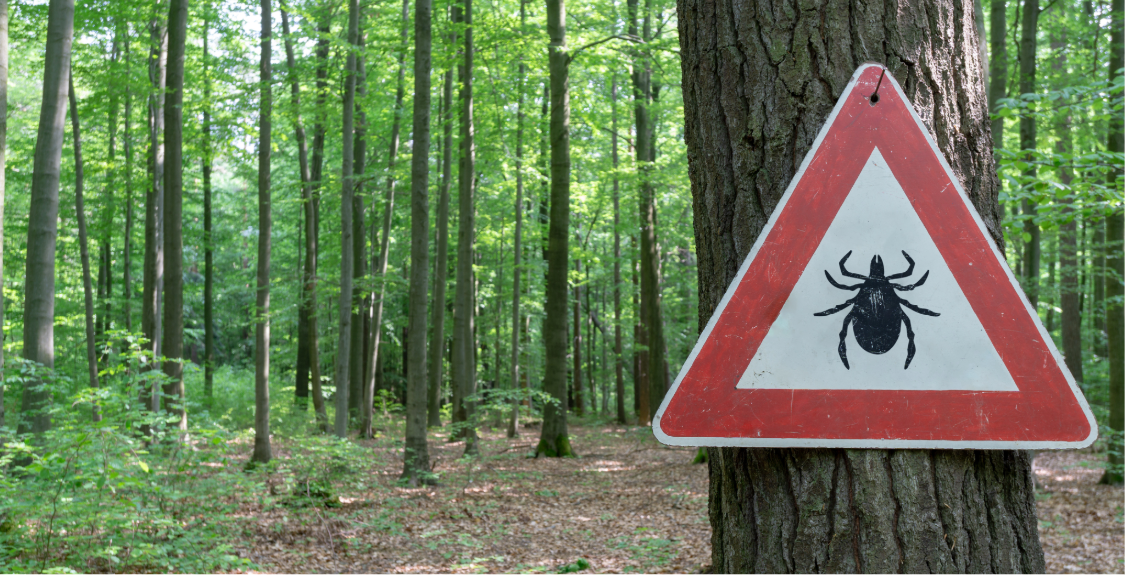AFM NEWS
Don't Get in Trouble with Ticks

If you've spent any amount of time in the woods, you've likely encountered a tick. Ticks are small arachnids that range in size from small to large, depending on species and phase in the life cycle. After latching on to their host, ticks can infect them with Lyme Disease or Rocky Mountain Spotted Fever, both of which can have debilitating effects if treatment is delayed. The most important thing to remember is tick bites are preventable, so let's reiterate strategies to keep you safe when you're on your next adventure.
Before trekking into the woods or other brushy and grassy areas, ensure you've used all the tools in your tool belt. First, consider purchasing commercially treated clothing with the tick-repellent permethrin, which can last up to 70 washes. You may also treat your own clothing, boots, and gear by purchasing a spray and following the manufacturer's instructions when applying it. Next, wear clothing that covers your skin, tuck your shirt into your pants, and wear crew socks to provide additional protection. Ticks instinctually climb or crawl up the body to find skin and will latch on anywhere they can. Individuals with long hair should keep it tied up and covered. Lastly, check yourself periodically throughout the day and brush off ticks that are on your boots, clothing, or gear. Remember, prevention is the most important method of defense against ticks, but you should still be aware of what to do if a tick is biting you.
Although it's easier said than done, do not panic if you find a tick on your skin. Ticks feed for 24 hours before transmitting disease or infection, so if you see a tick during shower or bath time, calmly remove it using the pointy end of a pair of tweezers. Rather than gripping the tick from the back end (which pushes the germs to the front end that is attached to you!), get as close to the skin as possible and squeeze, pulling the tick out like a splinter. Ensure that you've removed the tick's head; the mouthpart may be left behind, but that's okay. Once you're sure the tick has been completely removed, clean the bite wound with disinfectant and save the tick in case an infection develops.
If you believe you have been infected, it's crucial to know the symptoms. Lyme Disease and Rocky Mountain Spotted Fever (RMSF) have some overlapping symptoms but can be easily differentiated by a healthcare professional. Both can cause flu-like symptoms like fever, headache, chills, and body aches, but GI upset is more commonly attributed to RMSF. Lyme Disease presents a rash that occurs in 80-90% of infections and is solid red or a series of red rings that are not itchy or painful. Victims of RMSF may develop a rash that resembles red pinpricks or splotches, but many do not. Regardless of the disease or infection, immediate treatment is essential to making a full recovery.
Prevention is the primary form of defense against tick bites and subsequent illness. Be sure to wear light-colored clothing and use insect repellent on your clothes and gear. Check yourself for ticks after each outing, and remove them as quickly as possible. With proper precautions, ticks won't stop you from enjoying outdoor recreation.
